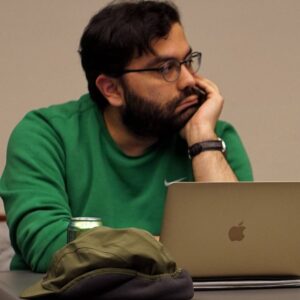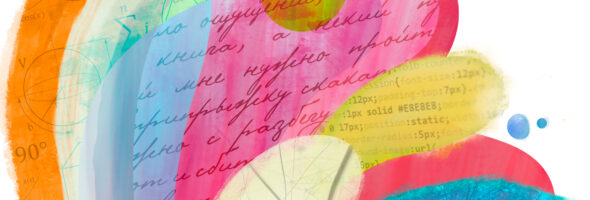Edinburgh University Students’ Association’s Student-Led Teaching Awards are back to recognise outstanding members of learning and support staff. After a challenging year for everyone, we’re celebrating our worthy nominees by shouting about their successes across our digital platforms.

What is your full name?
Mahrad Almotahari
What is your job title?
Senior Lecturer
What school or service do you work in?
Philosophy, Psychology and Language Sciences
Please tell us a little bit about yourself and your role.
I’m new to Edinburgh. I joined PPLS over the summer. Previously, I taught at the University of Illinois-Chicago. I specialize in the philosophy of language, the philosophy of mind, and metaphysics. I enjoy teaching in each of these subjects. I’m currently the Honors Coordinator for the Philosophy Department — an immensely enjoyable role.
What does it mean to you to have been nominated for a Teaching Award this year?
I’m delighted to learn that students find Mind, Matter, and Language rewarding. The topics we survey in that course often involve an unavoidable level of technical sophistication, so it’s gratifying to know that the way in which the material is presented is helpful. My hope is that, over time, as I get better acquainted with the student body, the course will continue to improve.
What’s your favourite part of your role and working with students?
I enjoy seeing students grapple with difficult questions and arriving (largely on their own!) at innovative, challenging, and insightful answers.
How have you adapted your approach to teaching and supporting students under the Hybrid Model this year?
I’ve tried to break lectures down into smaller, more easily digestible, bites. This required some amount of careful planning, since each new bite-sized morsel naturally incorporates a little bit of the previous bite; but one doesn’t want to burden students with too much repetition. A lot of my time prepping for the lectures was spent thinking about how to strike the appropriate balance between old and new information, given the formatting constraints for asynchronous lecturing.
What’s been the biggest challenge in your role this year?
As a lecturer, I often rely on the nonverbal signals of my audience to determine whether an idea needs to be restated or whether I should move on to the next topic. Not having an audience this year has made it quite difficult to determine how lecturers should proceed. There have been other challenges, of course, but that was the most pressing for Mind, Matter, and Language.
What would you say to the student(s) who nominated you, or students who are considering submitting a nomination for a staff member who has had an impact on them?
Thank you! Positive feedback is just as important as constructive criticism — both help me to determine what teaching methods worked and what didn’t.
To find out more about the Teaching Awards and browse nomination categories, please visit the Students’ Association’s website.


